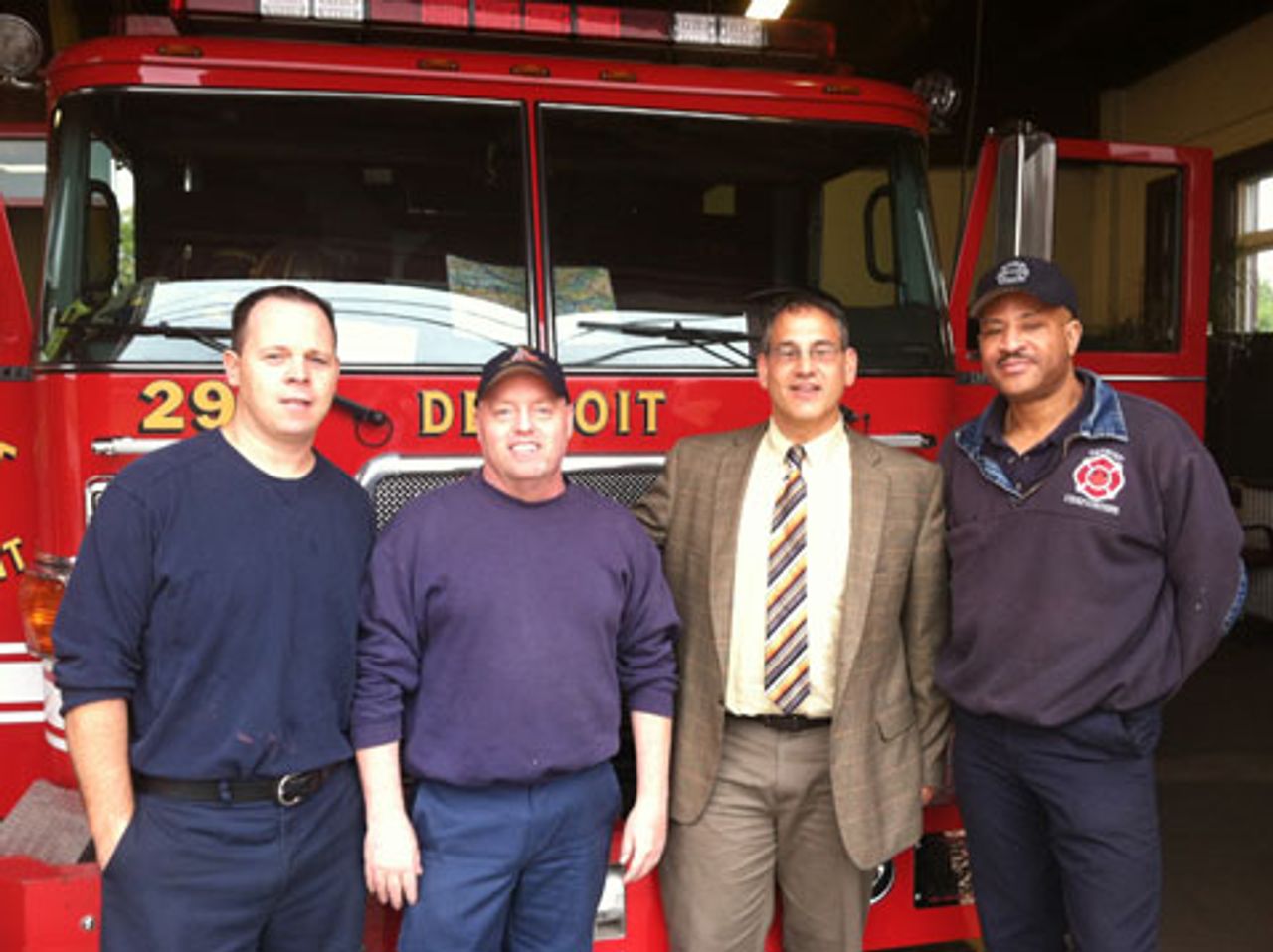 Jerry White with firefighters at a southwest Detroit fire station
Jerry White with firefighters at a southwest Detroit fire stationEarlier this week, after visiting the picket lines at the Detroit Water and Sewerage Department, SEP presidential candidate Jerry White stopped at a nearby fire station to talk to firefighters about the significance of the struggle.
The strike at the DWSD began on Sunday over plans to privatize the department and layoff 80 percent of the workers. It was still ongoing at the time of the discussion. (See “AFSCME regional, local leaders betray Detroit water workers’ strike” )
White introduced himself and explained the basis of the SEP’s campaign—the fight for a political party of the working class to oppose inequality, the assault on jobs and social programs, and the subordination of every social right to the profit interests of the corporate and financial elite. One firefighter commented, “You’re saying all the right things,” and another added, “You’ve got my vote.”
White explained the situation facing the water and sewerage workers. “They are doing the same thing to us. We support them,” Ronald said. Democratic Party Mayor David Bing, a multimillionaire, is seeking to make an example of the striking workers, as he implements similar attacks on the entire city workforce.
Early in the week, the city obtained a court injunction ordering the workers to end their strike, on the grounds that it was a danger to the health and safety of the city.
“If they were concerned about health and safety, they wouldn’t have cut 15 [fire] stations,” Ronald commented. “They are not concerned about health and safety; they are concerned about dollars and cents. They have cut down the department and work the hell out of everyone that is left.
“We are going further now for fires, and there are longer times before we get there. Fires grow exponentially. Very rarely do we get to a fire where there is anything left to save. They used to send three units to a fire. Now it’s two—four less guys.”
The most recent round of cuts in Detroit was implemented in July. In addition to the shutdown of fire stations, firefighters were forced to accept a 10 percent pay cut and cuts in health care benefits. Similar conditions prevail throughout the metropolitan area. This week, Hamtramck announced that it was laying off nearly half of its firefighters in response to a budget deficit of a couple million dollars.
“There have already been several fatal fires near closed stations,” Eugene, another firefighter said. “We knew this was going to happen with the cuts.
“The fire commissioner [Don Austin] came in and said he was prepared to ‘take causalities.’”
White discussed the presidential elections, referring to the statement by Republican candidate Mitt Romney that workers don’t have the right to a job, housing, food or any of the most basic necessities. “The Democrats don’t challenge this position at all,” White said. “All sections of the political establishment insist that there is ‘no money’ and that workers have to accept the destruction of their jobs and social programs.”
Steve said, “They are all part of the club. It doesn’t matter if you are good, bad or indifferent, as long as you have enough money.”
White stressed the importance of uniting the struggles of different sections of the working class throughout the Detroit Metropolitan area. “The water and sewerage workers can’t do it alone. The union is insisting that they go back to work. While the workers are fighting for their jobs, the union just wants to ensure that it has a seat at the table. It is just like the United Auto Workers, who worked hand in glove with the Obama administration in imposing a 50 percent wage cut for new hires, and got a major ownership stake in the companies in exchange.
“The problem is capitalism,” White stressed. “Everywhere workers face the same conditions. Look at what is happening in Greece and Spain. Workers can fight these conditions only if they are united, on the basis of their own independent class interests.”
White concluded by urging the firefighters to visit the picket lines to talk with the water and sewerage workers about their struggle.
